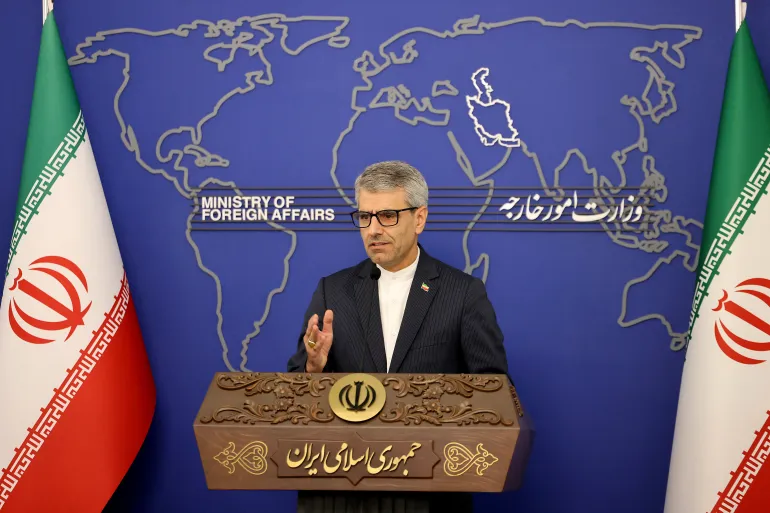
WafricNews | June 2, 2025
TEHRAN - Iran has issued a firm demand to the United States: no nuclear agreement will be reached without a clear and enforceable guarantee on sanctions relief.
This call for transparency was delivered by Iranian Foreign Ministry spokesperson Esmail Baghaei on Monday, underscoring Tehran’s growing frustration with what it views as vague and insufficient U.S. commitments in ongoing nuclear negotiations.
“The American side has not yet provided the necessary clarity,” Baghaei said. “We need a detailed explanation on how, and through what mechanism, sanctions will actually be lifted.”
His remarks come after the U.S. reportedly submitted what it described as an “acceptable” proposal aimed at reviving talks over Iran’s nuclear programme—talks that have now stretched into their seventh week. However, Iranian insiders say the offer falls short and may soon be formally rejected.
Diplomatic Deadlock Deepens
At the heart of the impasse is Iran’s insistence on concrete guarantees. Years of sanctions have devastated the country’s economy, and officials in Tehran remain sceptical that Washington is ready to lift restrictions in a way that can be trusted or verified.
Supreme Leader Ayatollah Ali Khamenei has previously warned against being lured into what he calls “deceptive diplomacy” — a sentiment echoed in recent days by Baghaei.
Unconfirmed reports suggest Tehran is currently drafting what could amount to a formal rejection of the latest U.S. proposal, describing it as a “non-starter” due to its rigid stance on uranium enrichment and the absence of clear sanction relief terms.
Nuclear Concerns and Rising Tensions
The United States has long insisted Iran must halt all uranium enrichment, a position U.S. envoy Steve Witkoff labelled a “red line.” Meanwhile, a leaked UN report shows Iran has been enriching uranium up to 60%—far below weapons-grade but well above civilian energy needs.
Iran dismissed the UN assessment, accusing unnamed Western nations of manipulating the global body to serve geopolitical interests.
Tehran has confirmed receipt of the U.S. proposal but remains noncommittal. “Receiving a text certainly does not mean accepting it,” Baghaei clarified.
Echoes of the Past, Eyes on the Future
This latest standoff is a continuation of tensions that have simmered since 2018, when then-President Donald Trump unilaterally pulled the U.S. out of the landmark Iran nuclear deal, formally known as the Joint Comprehensive Plan of Action (JCPOA).
Five rounds of backchannel negotiations since April have failed to produce a breakthrough. Iran’s key demand remains: clear, enforceable sanctions relief—something it believes is essential for any deal to hold water.
Global Stakes, Regional Reverberations
While the U.S. frames its proposal as being “in Iran’s best interest,” Tehran says that’s for them to determine—not Washington. Observers note that the outcome of these talks could impact not just Middle Eastern stability, but global energy markets and non-proliferation efforts.
For African nations and other members of the Global South, Iran’s stance also raises broader questions around sovereignty, economic coercion, and the unequal power dynamics that still dominate global diplomacy.
By WafricNews Desk.
By WafricNews Desk.


Comment
To post a comment, you have to login first
LoginNo Comments Yet...